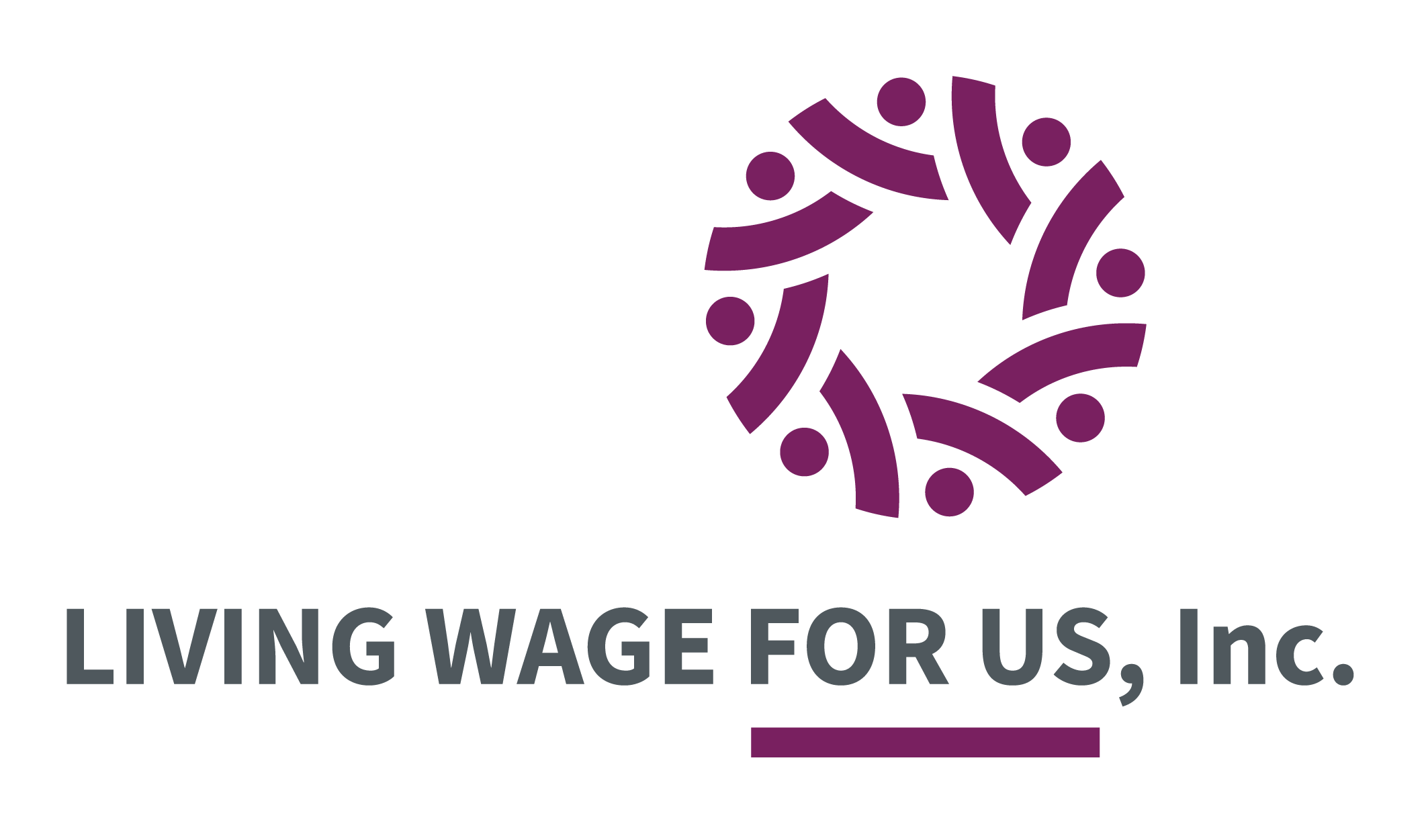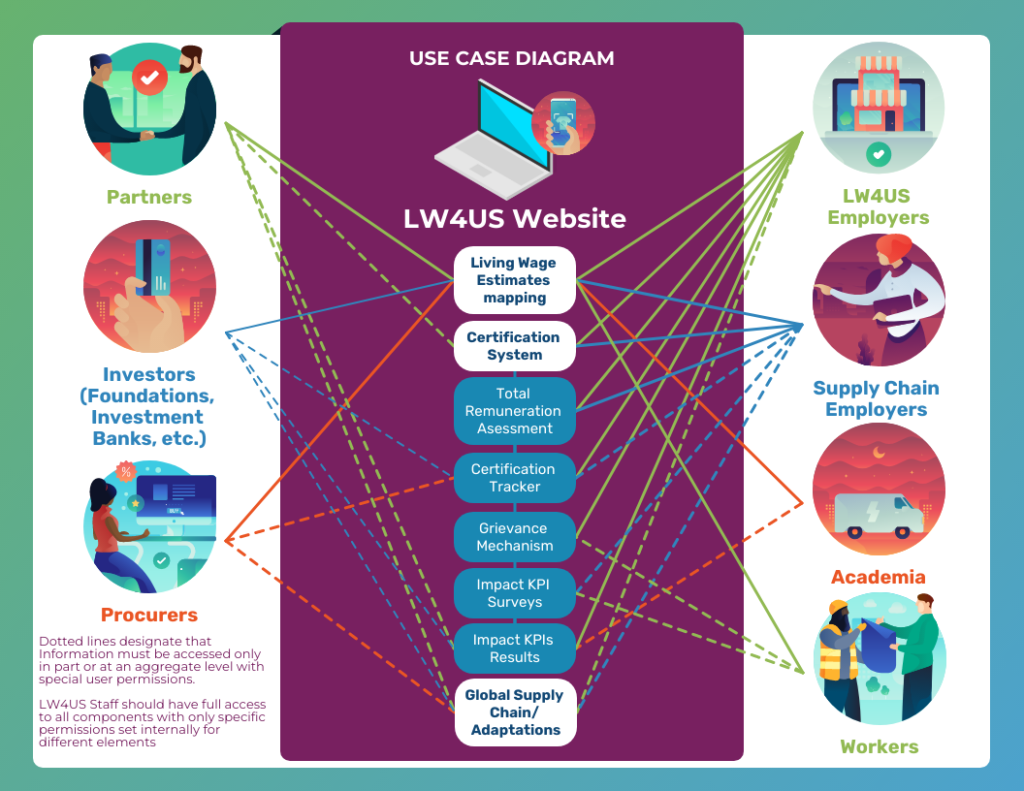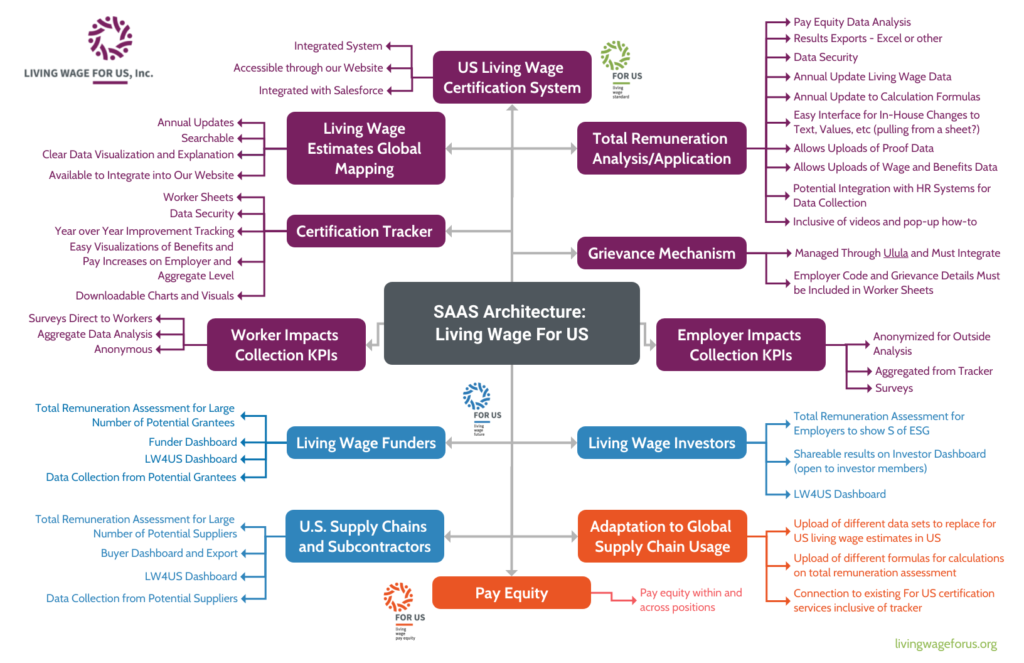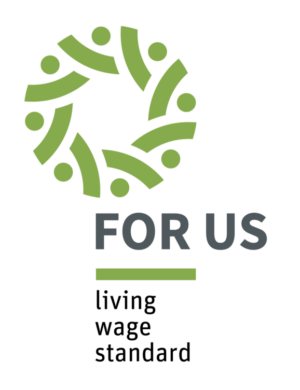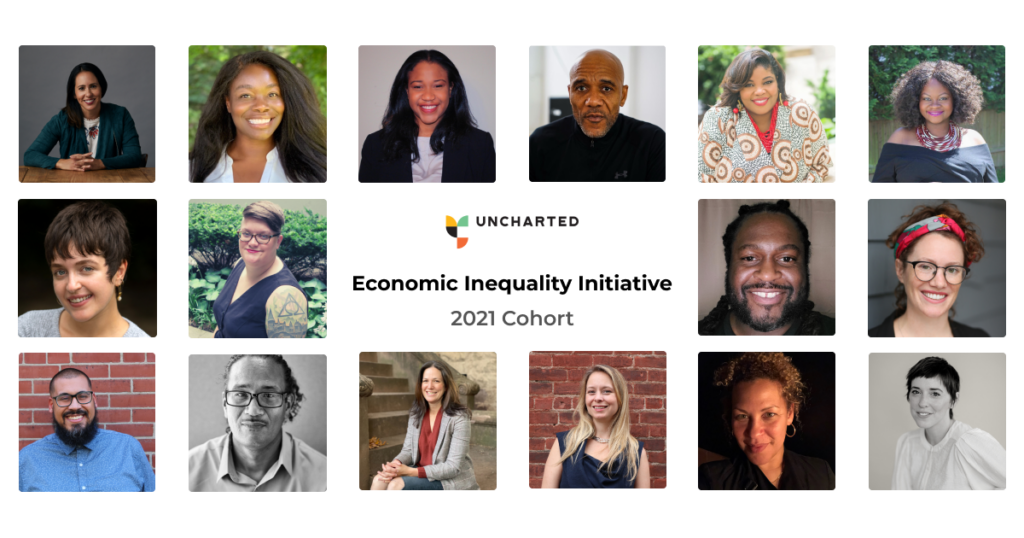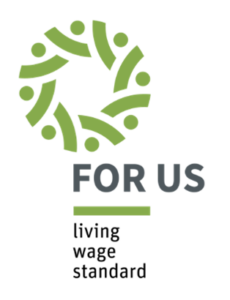
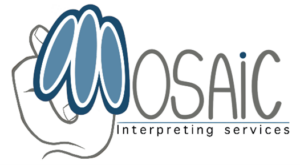
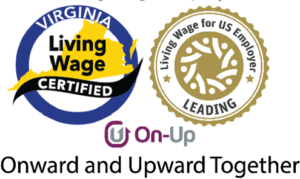
NEWS PROVIDED JOINTLY BY
Living Wage For US Inc and Viriginia Interfaith Center for Public Policy
April 17, 2024
FOR IMMEDIATE RELEASE
Mosaic Interpreting Services, provider of sign language interpretation and captioning for Deaf and hearing communities, is the first employer to be awarded dual living wage certification through the On-Up partnership between Virginia Living Wage and Living Wage For US. This achievement shows that Mosaic Interpreting Services is publicly committed to ensuring that all its employees earn enough to support themselves and their families with a decent living.
“For us, On-Up certification is evidence of our desire to build the world we wish to inhabit,” said Emily Haynes McGee, CEO and Founder of Mosaic Interpreting Services. “We believe that people can be their best selves, personally and professionally, when they are not existing under the constant strain of wondering if their needs will be met. We’ve found that prioritizing the human needs and happiness of those we employ has only grown our business, allowed creativity to flourish, created buy-in for our organizational mission, and made the workplace a far more enjoyable place to be.”
Employers certified through the On-Up program meet strict requirements that are publicly available and have engaged in a rigorous process of examining how their total remuneration packages ensure a decent quality of life for all their employees. Every employer certified through On-Up has informed all affected workers of their commitment and reported minimum wage levels, and honors a worker voice mechanism that allows workers to anonymously engage directly with Living Wage For US staff.
Allison Jones, Community Outreach at Mosaic Interpreting Services says, “On-Up certification displays our agency’s commitment to not only meeting living standards, but increased diversification and competency within our field. Mosaic Interpreting Services has an approach that is holistic. Educational opportunities for advancement include consistent professional development workshops, sponsoring events that promote community, internships, and mentorships. Developing strong relationships and an atmosphere of support is an integral part of Mosaic’s business model.”
Virginia Interfaith Center for Public Policy joined Living Wage For US as the first On-Up dual certification partner in December 2023. Employers in Virginia that achieve living wage certification through On-Up are recognized by both Living Wage For US and the Viriginia Interfaith Center for Public Policy as a living wage employer.
“We’re ecstatic to welcome Mosiac Interpreting Services as the first living wage employer certified through the On-Up partnership with Virginia Interfaith Center for Public Policy,” said Michelle Murray, CEO of Living Wage For US. “Partnering together through On-Up will help us impact the lives of more workers across the Commonwealth.”
“The On-Up dual certification program helps Virginia Living Wage ensure our certified employers are meeting the needs of their workers. Living Wage For US’ remuneration assessment helps us understand how employer provided benefits can contribute to the living wage and consider real costs of living at a county-by-county or city-by-city level,” said Kim Bobo, Executive Director of Virigina Interfaith Center for Public Policy.
About Living Wage For US
Living Wage For US is a nonprofit organization with the mission to overcome the barriers and create the incentives to enable employers to pay living wages, affording a decent quality of life for working families. We envision a world where every family can afford a decent standard of living and every worker is fairly compensated without prejudice. For more information, visit www.livingwageforus.org.
About Virginia Living Wage and Virigina Interfaith Center for Public Policy
Living Wage Virginia is a program of the Virginia Interfaith Center for Public Policy to recognize local employers who pay all employees a living wage. The Virginia Interfaith Center for Public Policy advocates economic, racial, and social justice in Virginia’s policies and practices through education, prayer, and action. For more information, visit www.virginiainterfaithcenter.org.
